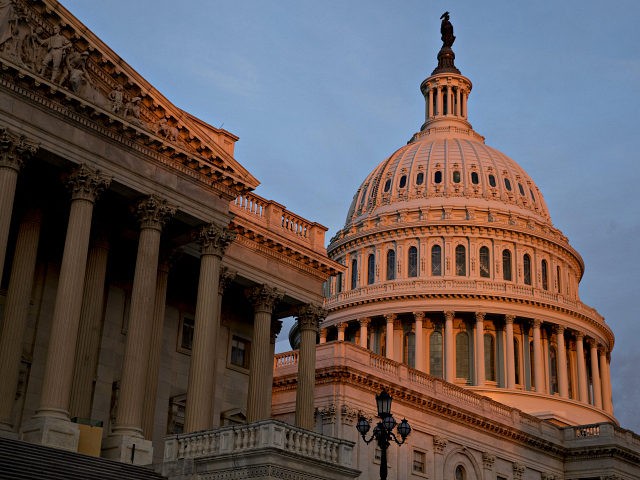Congress should only decide the presidential election if there is evidence of “wide-scale voter fraud,” determined John Yoo, professor of law at the University of California, Berkeley, visiting scholar at the American Enterprise Institute, visiting fellow at the Hoover Institution, and author of Defender in Chief: Donald Trump’s Fight for Presidential Power, offering his analysis on SiriusXM’s Breitbart News Sunday with host Joel Pollak.
Pollak asked about the Supreme Court’s denial of Texas’s request for permission to file a lawsuit against Georgia, Michigan, Pennsylvania, and Wisconsin challenging the four states’ various election law changes in 2020.
Yoo replied, “I don’t blame Trump supporters for wondering what is going on, but I think the Supreme Court is the wrong venue, and let me explain why. In this last case where Texas sued the battleground states … the court wasn’t denying the case because [Texas lacks] legitimate objections. What they did is [determine] that the Supreme Court and the federal courts aren’t the place to resolve these kinds of disputes.”
Yoo continued, “And I think there’s two reasons. One is a state can’t just go suing other states because they don’t like the way they run their elections. Conservatives, like me, generally believe in federalism. Generally, states should run their own electoral systems. States decide who their presidential electors are going to be. If we opened up the door to states being able to sue each other because they don’t like the way that they run things, then you’re going to have states like … California is suing every conservative state about the way they run elections, the way they draw their districts. They might say, ‘We don’t like the fact that you have voter ID and on and on and on.”
“The court didn’t want to open up that Pandora’s box,” Yoo stated.
LISTEN:
Yoo went on, “The second thing is, people who are supporting Trump shouldn’t take this as a rejection of their claims. The other thing the court is really saying here is that there is another way to address wide-scale voter fraud, corruption, etcetera. It’s just not through the court system. It’s through the system the Constitution sets out, which is a political answer.”
“I don’t mean Democrat-Republican politics,” clarified Yoo. “I just mean political, and that it’s not a legal answer. The political answer is the electoral votes get sent to Washington, D.C. The vice president opens the votes in the presence of the House and the Senate, and if, say, people in Texas want to object to the way electoral votes were counted in some of the other states, their members of the House and Senate have the ability at that point to make their objections.”
Yoo recalled, “As far as I know, it’s been a very long time. I don’t think until the election of 1876 — you have to go back that far — has Congress really intervened at that point. There have been small objections here and there, but none of them have ever succeeded, but the [Supreme Court] is saying the Constitution sets out a path to make these kinds of concerns known in the way elections are run in different states, but it’s not something you’re going to [bring] to the Supreme Court for an answer.”
Pollak remarked, “I still feel a sense of unease about having Congress overturn the electoral college vote. Do you think it’s a realistic path for the Trump campaign to take?”
Yoo responded, “There’s difference between what the Constitution permits — the rules, and going as far as you can under the rules — and what’s a good idea to do in terms of good judgment and prudence.”
“I don’t think it’s a good idea to use that method unless you really can show with real proof to your members of Congress and your senators that there’s really enough fraud in enough places to really change the outcome of the election,” Yoo assessed.
“They would have to show fraud across multiple counties, multiple states,” Yoo said “They’re having trouble showing witnesses. They’re having trouble showing proof. I think that’s very hard to do.”
Yoo concluded, “I would say don’t use this really last line of defense in the Congress unless it’s you really have serious proof. … It’s such a serious step to go down using this method. I think you really can only do it when you have really serious proof that there was some serious abuse that really dictated change in the election.”

COMMENTS
Please let us know if you're having issues with commenting.